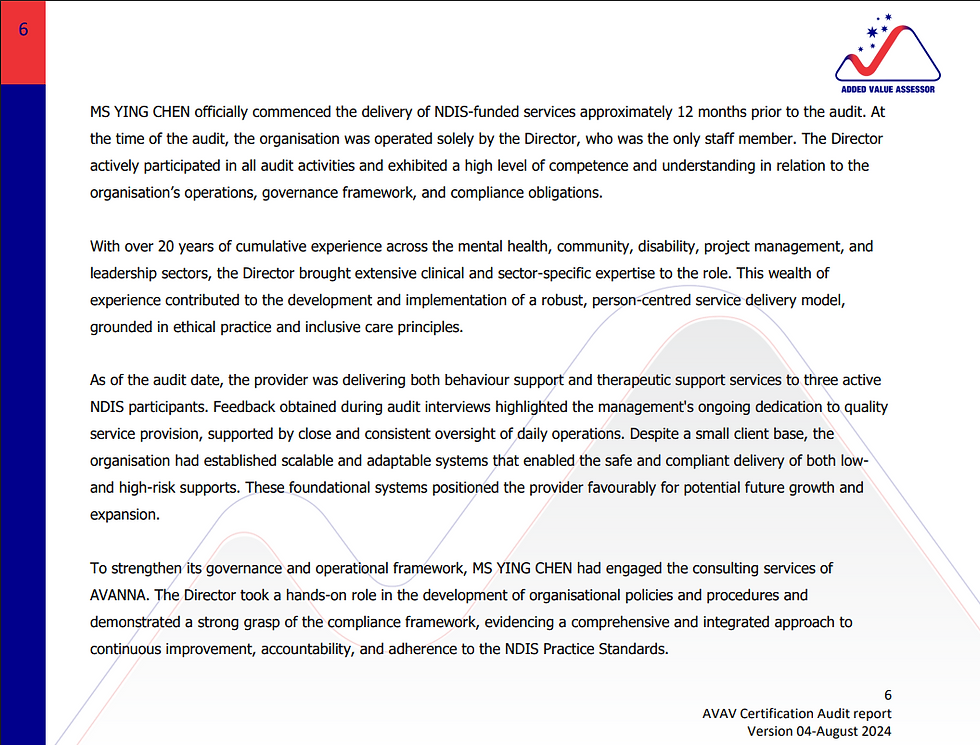What is Positive Behaviour Support in NDIS?
- Kelly Chen
- May 25, 2025
- 2 min read
Positive Behaviour Support (PBS) is a person-centred, evidence-based approach used within the National Disability Insurance Scheme (NDIS) to support individuals with disabilities who may show behaviours of concern.
At its core, PBS is not just about changing behaviour—it’s about improving quality of life. It focuses on understanding the reasons behind certain behaviours and creating positive, supportive environments where people feel safe, respected, and empowered.
PBS Is a Holistic Approach
PBS is holistic, which means it looks at the whole person—not just the behaviour in isolation. It takes into account:
The person’s physical and mental health
Communication style
Environment (home, school, community)
Relationships and routines
Sensory and emotional needs
This approach recognises that behaviours don’t happen in a vacuum. They are often a response to unmet needs, stress, or environments that don’t feel safe or supportive. PBS aims to meet those needs in healthier, more effective ways.
Collaboration Is Key: Working With the Support Network
One of the most important elements of PBS is that it doesn’t just involve the person—it actively includes their whole support network. This might include:
Family members
Carers and support workers
Teachers or educators
Allied health professionals
Community members
Why? Because real change happens when everyone is on the same page.
PBS practitioners work closely with the person’s circle of support to:
Understand the person’s strengths, needs, and goals
Develop consistent strategies that everyone can follow
Build a sense of stability, predictability, and trust across all settings

By including the people who know the person best, PBS helps create a strong foundation for success.
Key Principles of Positive Behaviour Support
Understanding behaviour: All behaviour communicates something. PBS helps uncover what that is.
Individualised support: Every plan is tailored to the person—not a one-size-fits-all approach.
Positive reinforcement: Encourages desired behaviours using encouragement and support.
Skill-building: Teaches new, functional skills so the person has more ways to express themselves or get their needs met.
Collaboration and consistency: Involves everyone around the person in a shared, supportive plan.
How PBS Works Under the NDIS
For NDIS participants with funding in the Improved Relationships category, PBS may include:
Functional Behaviour AssessmentA trained practitioner learns about the person’s needs, routines, environment, and triggers.
Behaviour Support Plan (BSP)A written plan is created with proactive strategies, clear responses to behaviours of concern, and skill-building goals.
Training & ImplementationEveryone in the support network is trained to follow the plan consistently.
Monitoring & ReviewThe plan is reviewed regularly to make sure it’s helping and to make any needed adjustments.
The Goal: A Better Life, Not Just Better Behaviour
PBS isn't about control—it's about empowerment. When people feel supported, understood, and respected, they gain more confidence, more independence, and stronger relationships.
The result? Less stress. Fewer behaviours of concern. And a life where the person feels truly seen and supported.



Comments